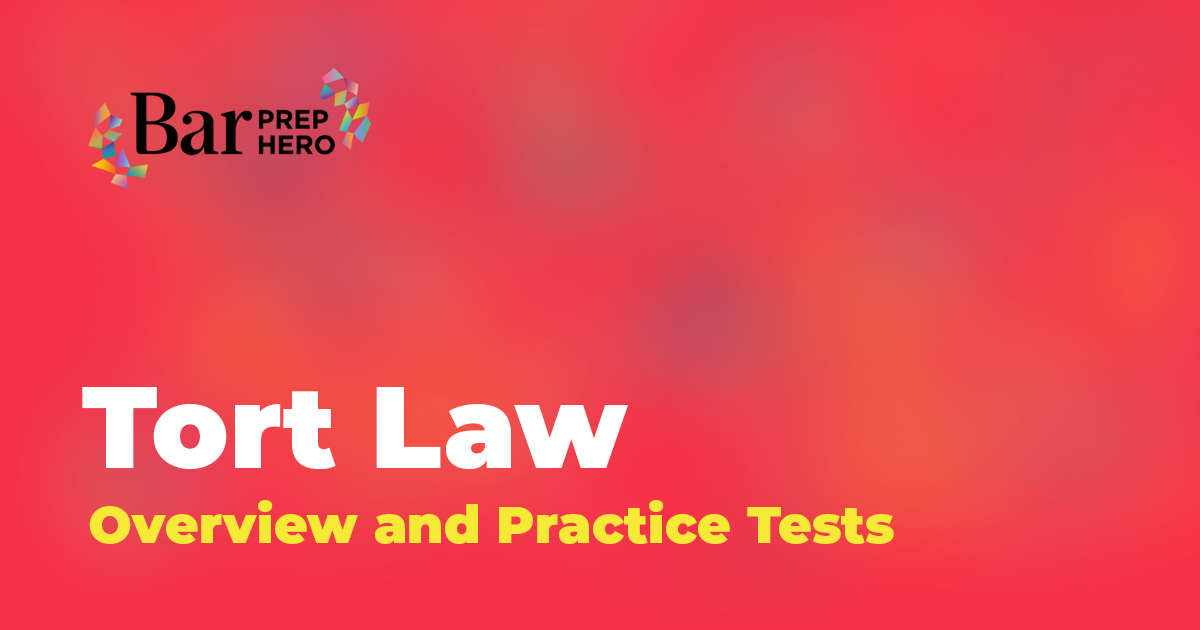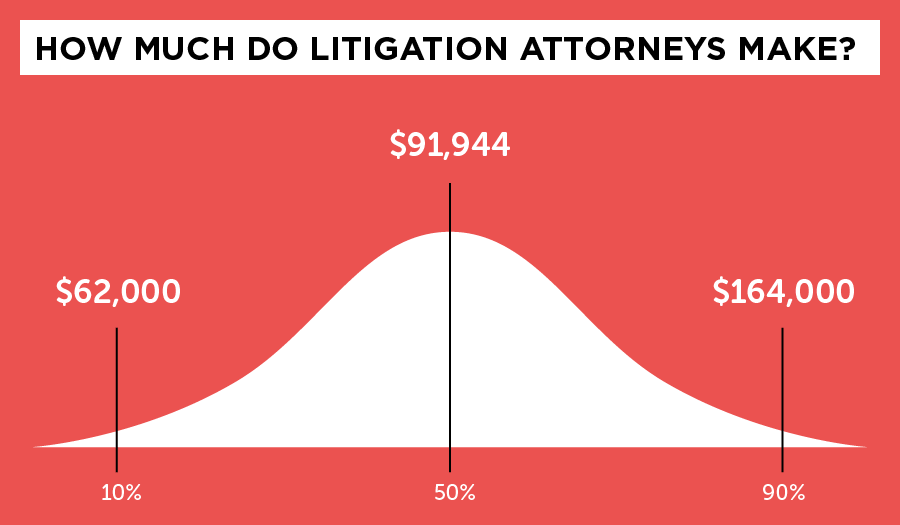Tort Law
Overview and Practice Tests
 By Andrei Zakhareuski, BarPrepHero, Founder/CEO
By Andrei Zakhareuski, BarPrepHero, Founder/CEO
More help for you
What is Tort Law?
Tort law is the field of law that provides relief to parties who have suffered harm and losses from the wrongful actions of others. The purpose of tort law is to hold the wrongdoer, called the tortfeasor, liable for harm caused substantially by their wrongdoing, and to make whole those who have been harmed.
Start Preparing for Your Bar Exam Now
Types of Torts
Intentional
Intentional torts involve aware and intentional action that causes harm or injury to another. The main intentional torts are assault, battery, trespass to land or chattels, false imprisonment, and intentional infliction of emotional distress.
Negligence
Negligence is a breach of a duty of reasonable care that causes harm to another. The elements for a negligence action are duty, breach, causation, and harm. Examples of negligence actions include slip and fall incidents, medical malpractice, and car accidents.
Negligence liability does not require intentional conduct. Instead, it serves to attribute legal liability against those who fail to act in a reasonable manner under the circumstances and are found to be a substantial factor in causing the harm and losses claimed by the plaintiff. The acts of the defendant are held to a reasonable standard of care that would be required of a reasonable person under similar circumstances.
Strict Liability
In certain situations, liability is imposed by statute even without proof of fault or negligence.
Products liability is one example of strict liability under tort law. If a product is found to be defectively manufactured, the manufacturer will be held liable for proximately caused injuries, even if the manufacturer did not act in an intentional or negligent way to cause the defect. In this way, the public policy places the liability for the injuries and damages from defective products and equipment on the manufacturer and not the purchaser.
How to Become an Attorney
Becoming a tort litigation attorney starts with earning your undergraduate degree with a good GPA. Being a part of a pre-law track, typically in the fields of criminal justice or political science, is extremely helpful. After graduating from university, getting a good score on the LSAT is required to get admitted into law school. Law school is typically three years of study of the common law and state-specific law. Becoming a tort litigation attorney starts with earning your undergraduate degree with a good GPA. Being a part of a pre-law track, typically in the fields of criminal justice or political science, is extremely helpful. After graduating from university, getting a good score on the LSAT is required to get admitted into law school. Law school is typically three years of study of the common law and state-specific law. The skills of legal analysis (practical problem solving) are learned through the examination of hypothetical problems. In many law school courses, the case method allows the student to become familiar with how the courts perform legal analysis to decide difficult conflicts between the parties.
Law school also gives you the ability to gain important experience for your future career through internships, moot court, law journal, assisting in pro bono cases or neighborhood legal services, or on campus interviews for jobs with local law firms. Once a student graduates from law school, he or she must study for and pass the Multistate Professional Responsibility Exam (MPRE) and the State or Uniform Bar Exam, which may consist of the Multistate Bar Exam (MBE), State-Specific Essays and Procedure and Evidence exams, Multistate Essay Exam (MEE), or Multistate Performance Exam. After successfully passing the required exams, you can be sworn in and get your law license to begin practicing law. In a few states, you may be required to serve as an intern under an experienced attorney for a few months prior to your swearing in as a practicing attorney.
Requirements
- Bachelor’s Degree in good standing -- pre-law field preferred, but not required
- Juris Doctor degree (J.D.) from an accredited law school
- Passing the MPRE and Bar exam
- Law license from the State Bar
Job Description and Duties
A tort litigation attorney’s main responsibilities consist of representing their client in bringing tort law cases against somebody else, or in defending their client against tort litigation. Tort litigation attorneys research the relevant tort law, draft legal documents on behalf of their clients, file formal lawsuits in appropriate jurisdictions, conduct discovery to find out information from the opposing side in tort litigation cases, and engage in the preparation and argument of various motions that comprise the motions practice aspect in a tort case or in any civil litigation matter. The works to obtain fair and reasonable settlements for the client(s) so that the case is amicably settled prior to going to trial. Tort litigation attorneys typically work in a law firm or as a sole practitioner, either in a plaintiff’s firm or a defense firm, or a firm that may handle claims for plaintiffs and act in a defense capacity in other cases. Some tort litigation attorneys also represent large companies, corporations or other business entities and serve as in-house counsel. They can also choose to open their own firm, i.e., a small partnership or a sole proprietorship.
Salary Information and Employment Outlook
The average salary for a litigation attorney is $91,944, with a salary range of $62,000-$164,000 and annual bonuses ranging from $1,000-$35,000. The projected job growth for attorneys is 8% from 2016-2026, according to the U.S. Bureau of Labor Statistics (BLS).

Tort litigation attorneys often specialize in a particular category of tort law, including medical malpractice, auto accidents, class actions, environmental torts, and insurance defense. Generally, these matters are referred to as the practice of personal injury law.
If you are on track towards taking your bar exam, we have got you covered! With free MBE practice tests and a pass guarantee premium program, you will walk into your test with enhanced preparatory knowledge and confidence of a positive result.

